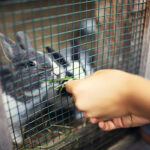Pet rabbits in southern Alberta have been diagnosed with rabbit hemorrhagic disease. A tiny virus, known as a calicivirus, causes this deadly rabbit disease. The virus spreads easily between animals, which allows it to rampage through rabbit populations. Most rabbits that become infected die. So far, the source of the virus in this outbreak remains […] Read more
Tag Archives animal health — page 18
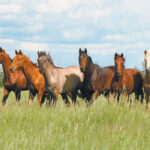
New Ontario study explores heart infections in horses
Infections that localize to the heart are rare but serious in any animal. A recent study published in the Canadian Veterinary Journal by Dr. Brianne Henderson and colleagues at the University of Guelph’s Ontario Veterinary College sought to better understand heart infections in horses. They focused specifically on infections of the heart valves, which is […] Read more
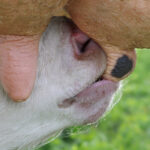
Colostrum — nature’s amazing first milk
With calving, lambing, foaling and kidding seasons upon us, something that may be top of mind for many producers is colostrum. It is the first milk produced by lactating mammals and in our livestock species is critical for health, growth and longevity. During gestation, the placental layers in ruminants and horses prevent antibodies from passing […] Read more
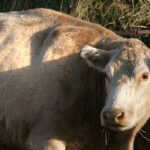
Consider upstream factors when investigating disease
The other day, I presented a case of a deceased wolf to the veterinary students’ pathology rounds. This is a weekly event at the University of Calgary where veterinary pathologists take turns showing and discussing interesting cases to create a less formal learning experience for the students in the program. Like many things this year, […] Read more
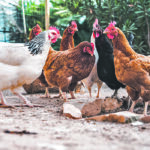
Interest grows in raising small urban poultry flocks
An unexpected outcome of the COVID-19 pandemic is the surge in interest in raising chickens. Growing one’s own food during times of uncertainty is a way to exert control and it seems as though Canadians are eager to plant gardens and tend chickens as a way to achieve this. Part of the interest in chickens […] Read more
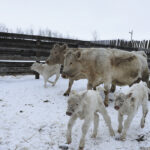
Freemartins a risk with twins
Twins in cattle can create challenges. One of them is the arrival of a freemartin, an infertile female that can result when one twin is male and the other female. Dr. Colin Palmer, associate director of the University of Saskatchewan Livestock and Forage Centre of Excellence, says 85 to 90 percent of female calves born […] Read more
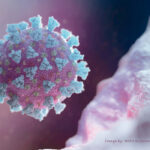
Mutated variants part of infectious pathogens’ evolution
One of the more concerning events during the COVID-19 pandemic has been the detection and emergence of virus variants. These variant strains have mutations that slightly alter their genetic code such that they are more readily transmissible, a worrying feature given the issues with control already occurring. Even more frightening, there is growing evidence that […] Read more
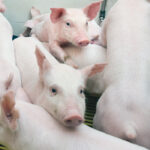
New vaccine technology helps control diarrhea in piglets
It’s frustrating for veterinarians to try and make a definitive diagnosis of an ongoing health challenge if they lack the tools in the toolbox to help the situation. One such disease of young suckling piglets is Rotaviral enteritis (diarrhea). Rotavirus: the organism While there are many devastating viral diarrheas on western Canadian pig farms, Rotavirus […] Read more
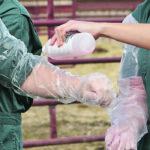
Biosecurity farm practices are often just common sense
With the arrival of calving season, now is the time to talk about biosecurity. Just like we have learned principles to prevent the spread and contraction of COVID-19 between humans, similar principles apply to most infectious diseases in livestock production. The diseases vary between species, but many principles remain the same. Cleaning and disinfection in […] Read more

Cannabis legalization did not increase dog poisonings
Cannabis became legal for recreational human use in October of 2018. At that time, there was much concern in the veterinary community about the impact of legalization on pet health. In particular, it was assumed that dogs may be at increased risk of cannabis intoxication. With legalization, it was feared, there would be more cannabis […] Read more



